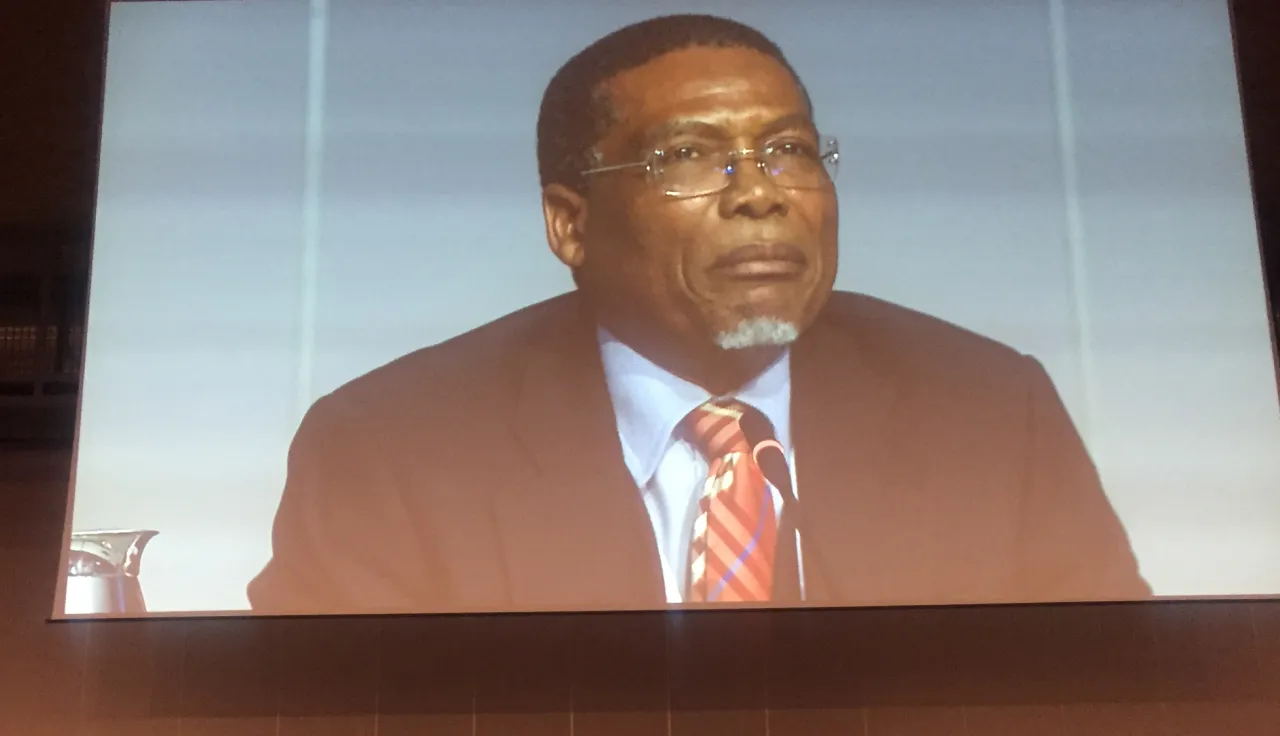Five takeaways from the Health Care in Danger commissions

Health Care in Danger newsletter - March 2016
In December 2015, Ambassador Seleka chaired two Health Care in Danger (HCiD) commissions at the 32nd International Conference of the Red Cross and Red Crescent. Over 30 representatives from States, National Societies and health organizations from all over the world spoke about the steps they had taken to ensure the safe delivery of health care. The wealth of valuable experience they shared was encouraging, particularly given that violence against health-care workers and facilities is so widespread: almost daily we mourn the loss of dedicated front-line doctors, and innocent civilians are deprived of vital care. The participants invited us to focus on positive and constructive experiences, and share and build on them.
We have asked Ambassador Seleka to share the core messages that he took from the commissions.
1. Keep the humanitarian sphere free from sectarianism
The frankness and true spirit of constructive engagement, open dialogue, de-politicization and sharing of best practices, all of which animated the commissions, are what we should aim for if we really want to address the issue of violence against health care.
2. Everyone should care
In the words of Dr Otmar Kloiber, Secretary-General of the World Medical Association, "we are all concerned." Whether or not we are directly affected, everyone should help ensure that health care can be delivered safely. Because upholding international humanitarian law is for the good of humanity, especially in the brutality and wantonness of war.
3. Put communities first
Communities play a central role in protecting health-care workers and facilities. Community members should have a deep sense of ownership and respect for hospitals. This can only be achieved if they know that health facilities and personnel are there for everyone's health and well-being, regardless of their race, religion, tribe and faction or side they belong to in an armed conflict. The 32nd International Conference reminded us of the relevance and applicability of the seven Fundamental Principles of the Movement in modern-day situations of conflict and emergencies. In particular for health-care services, the principles of neutrality and impartiality need to be respected by all.
4. Start work in peacetime
Respect for health-care services should be promoted not only during conflict but also in peacetime. Prevention is key.
5. Look ahead and take action
The HCiD commissions were not preoccupied with problematizing the thematic issue. They were action-oriented and focused on sharing and promoting practices that can address the scourge that is currently imperilling health care. That is a lesson for all of us. It is also absolutely important that the National Red Cross and Red Crescent Societies, national governments and regional economic communities individually and collectively develop and submit pledges that rally and mobilize people. An imperative need to move away from being simply communities of concern to communities of action was underscored, as Health Care in Danger is a matter of life and death.
Read also:
"Are we doing enough to safeguard health-care services?" by Ali Naraghi, ICRC
"A road map for protecting health-care services" by Alexander Breitegger, ICRC
"Pledging to make hospitals safe havens" by Eric de Roodenbeke, IHF
Health Care in Danger is an initiative of the International Red Cross and Red Crescent Movement to make access to, and delivery of, health care safer in armed conflict or other emergencies. This initiative calls for the respect and protection of health-care workers, facilities and vehicles and the implementation of a series of recommendations and practical measures to safeguard health-care services and their humanitarian mission. This initiative is supported by a number of partners, individuals and organisations, members of the Health Care in Danger Community of Concern.
For more information:
- Visit the Health Care in Danger website
- Sign up to our newsletter and stay informed
